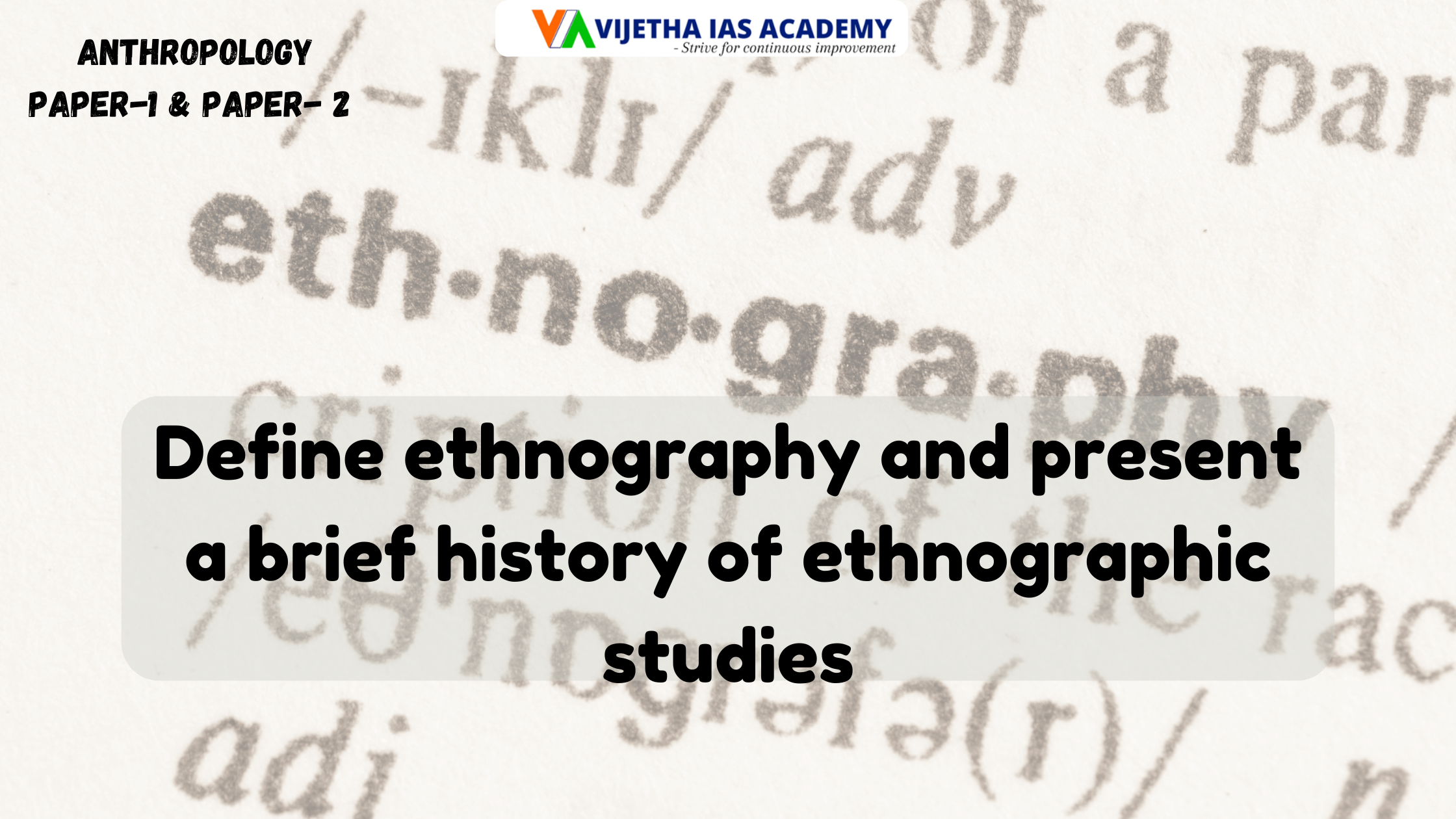
Introduction:
Ethnography is a qualitative research method central to cultural anthropology that involves the systematic study of people and cultures through direct observation, participation, and immersion in the day-to-day life of the study subjects. The term "ethnography" originates from the Greek words "ethnos" meaning people and "graphy" meaning writing, indicating a written account of a culture.
Main Body:
-
Definition and Scope of Ethnography:
- Ethnography involves detailed and descriptive studies of human societies. It is primarily concerned with understanding cultural practices, social interactions, and the belief systems of a group.
- The method is characterized by fieldwork, where the researcher spends extended periods within the community, using participant observation, interviews, and other qualitative techniques to gather data.
- Ethnography aims to provide a holistic understanding of a community, often resulting in rich, narrative accounts that reveal the complexities of social life.
-
Historical Evolution of Ethnographic Studies:
- Early Ethnographic Accounts:
- The roots of ethnography can be traced back to ancient travelogues and accounts by historians like Herodotus, who documented various cultures and practices. However, these early accounts were often superficial and laden with biases.
- Colonial Ethnography:
- During the 19th century, with the expansion of European colonialism, ethnography became more structured, as colonial administrators and missionaries documented the cultures of colonized peoples. This period was marked by an ethnocentric perspective, where non-Western cultures were often viewed as "primitive."
- Notable figures include E.B. Tylor and Lewis Henry Morgan, who are considered pioneers in the development of ethnography as a systematic study within anthropology.
- The Birth of Modern Ethnography:
- Bronisław Malinowski’s work in the Trobriand Islands during the early 20th century marked a significant shift in ethnographic methodology. His emphasis on participant observation and immersive fieldwork laid the foundation for modern ethnography.
- Malinowski’s approach was further developed by scholars like Franz Boas, who advocated for cultural relativism, stressing the need to understand cultures on their own terms rather than through a Western lens.
- Postmodern and Reflexive Ethnography:
- By the late 20th century, ethnography evolved to include reflexive practices, where the role and influence of the ethnographer became a subject of analysis. Clifford Geertz introduced the concept of "thick description," emphasizing the importance of context in interpreting cultural symbols.
- Postmodern ethnography challenges the notion of objective truth, acknowledging that ethnographic work is a co-creation between the researcher and the subjects.
- Early Ethnographic Accounts:
Conclusion:
Ethnography has evolved from early, often biased accounts of "exotic" cultures to a rigorous and reflexive methodology central to anthropology. It remains a vital tool in understanding the intricate tapestry of human societies, offering insights into cultural diversity and the shared aspects of human experience. The development of ethnography reflects broader shifts in anthropological theory, from ethnocentric views to a more nuanced and empathetic understanding of cultures.
